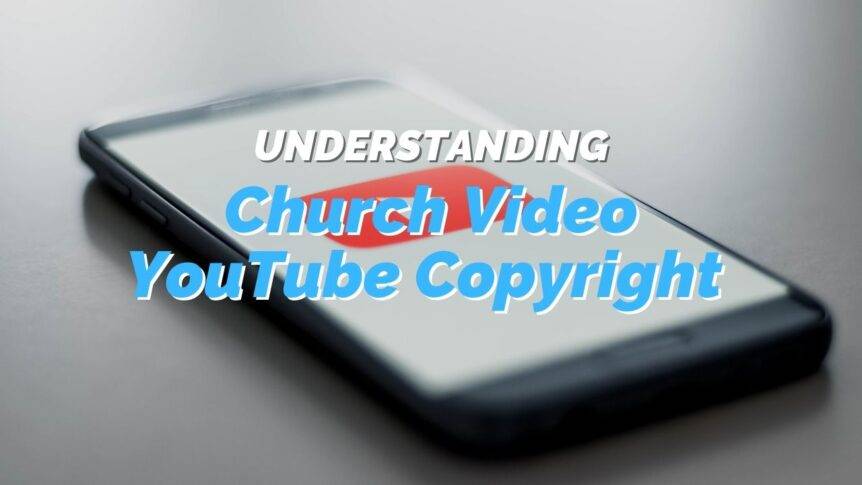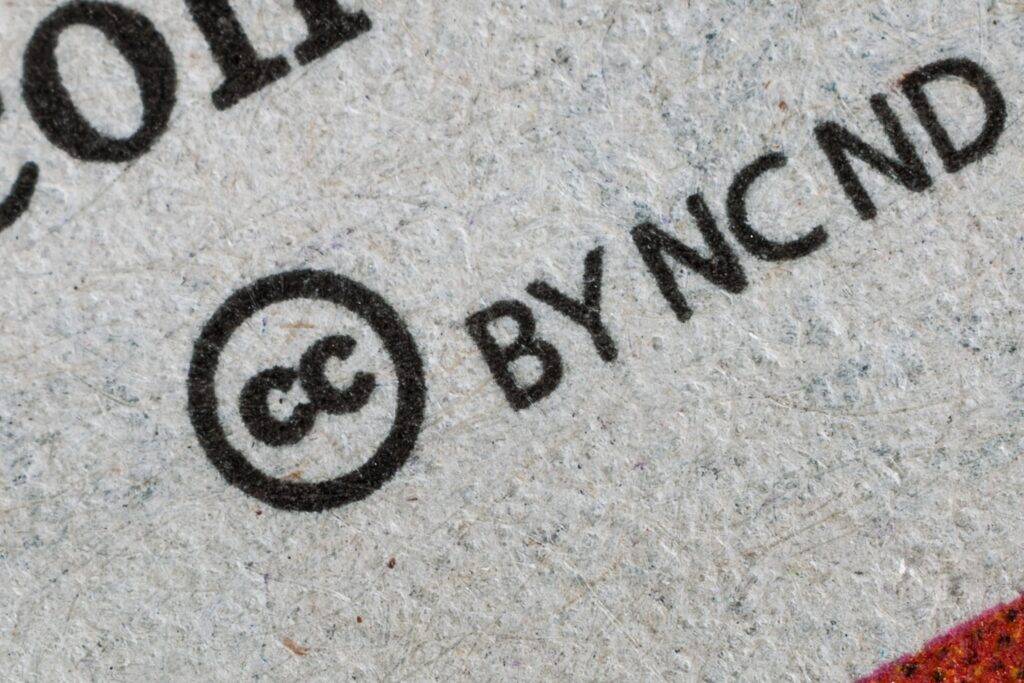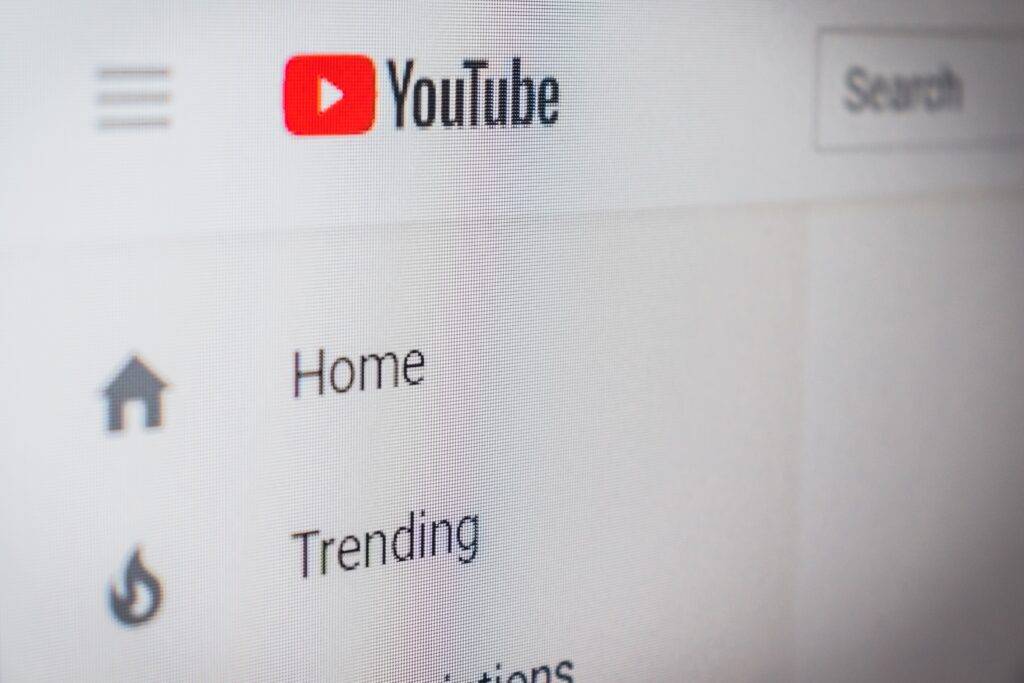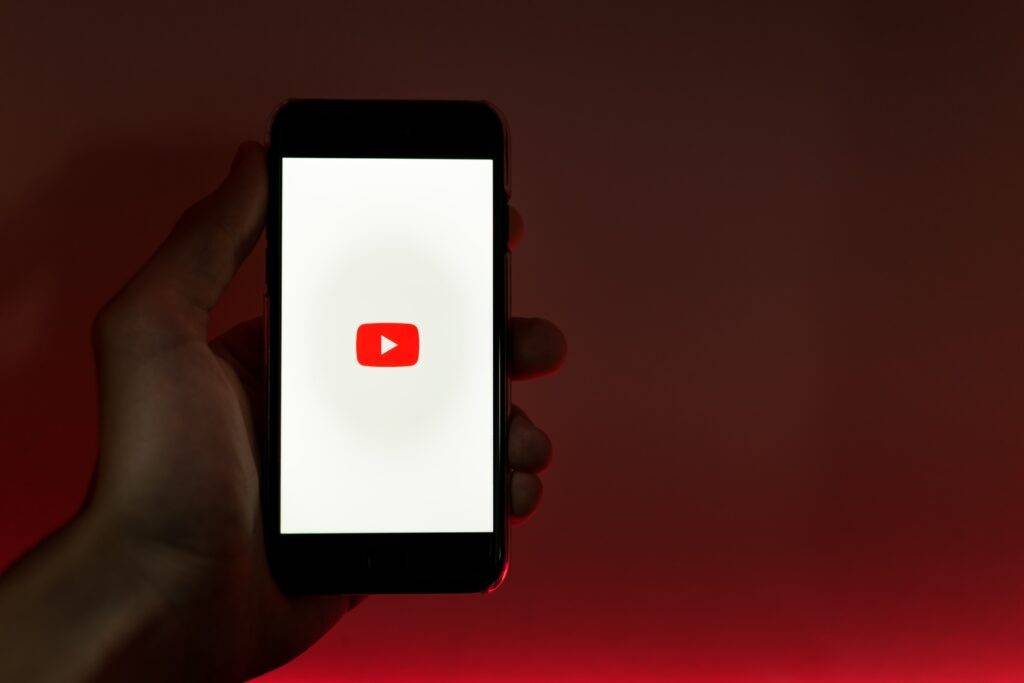Has your church ever encountered a YouTube copyright strike?
It can be confusing to understand what you can and cannot do on your church’s youtube platform. Youtube has stringent rules as to what music is allowed in videos. Copyright is a type of intellectual property that protects a creator’s original authorship as soon as it is created. The respective copyright owners copyright their worship music and while churches worldwide sing copyrighted songs each Sunday, it becomes tricky when uploaded onto Youtube.
So what are the do’s and dont’s of Church Video Youtube Copyright? Let’s find out!
Estimated reading time: 10 minutes
Table of contents
What are YouTube’s copyright restrictions?
When you get a Copyright strike, it means that the copyright owner submitted a valid legal takedown request. This acts as a warning, and Youtube requires you to go through a “copyright school”; by watching a video and answering questions. Copyright strikes typically affect your ability to monetize your videos. Churches usually are not uploading videos in order to monetize however so there is no monetary loss. Luckily a copyright strike does expire after 90 days. But be careful because 3 copyright strikes within 90 days youtube terminates the youtube channel and all your videos will be deleted.
Copyright Claim
A copyright claim refers to either a copyright removal request or a Content ID claim. A copyright removal will require you to simply remove your youtube video. Whereas a Content ID claim places certain restrictions on your channel. Depending on the claim, your video will either be blocked in certain countries or monetized with ads that will go to the copyright owner.
Are churches exempt from copyright?
The Religious Services Exemption allows for “…performance of a non-dramatic literary or musical work or of a dramatico-musical work of a religious nature or display of a work, in the course of services at a place of worship or other religious assembly shall not constitute infringement of copyright.” The RSE only covers non-dramatic literary and religious music. This allows any type of music to be played during a service. Even if the church service is not being held in a typical church building such as a school or community building, as long as it considered a church service, you are exempt to a certain degree. This certain exemption only applies to physical church services however, not online streaming. This is when you will need to get an internet streaming license.
Get Info About Your Strike
There are simple ways to get more info about your strike.
- Sign in to YouTube Studio
- From the left menu, click Content
- Click the filter bar
- In the Restrictions column, hover over Copyright
- Click SEE DETAILS
You should receive an email from youtube informing you of the copyright strike. This email will have more information and details about what exactly the strike is for. Most cases will be for a song that the owner has flagged. If you go to your youtube channel and click manage videos on your channel page, you will see more in-depth detail about each video you have posted.
Removed Videos:

Partially Blocked Videos:

Why am I getting strikes?
There are a few main reasons why your church may be getting a copyright strike. Copyrighted music plays a big part in strikes against creators. Your church must acquire the proper licenses to use any copyrighted music. This just means obtaining permission to use the creator’s music. Licenses are a way to protect not only the copyright owner but your church as well. When seconds of a song is played in any youtube video, it is automatically scanned for copyright infringement. This could be music played before the service starts on your livestream, or any of the worship music. There are certain copyright laws that must be followed, and thankfully there are a few easy ways to do that.
Often, when you get a copyright claim on a video, you lose any possibility to monetize. Since your video has songs written by someone else with a copyright, they legally claim all royalties.
All churches must obtain licenses to display song lyrics during a worship service. The typical way churches display that they’ve followed this protocol is by putting certain required information at the bottom of a slide like below:
“Our God Lives,” words and music by John Doe
© 2010 Good Music Co.
Used By Permission. CCLI License #______________
Fair Use
Fair use is a legal doctrine that says the use of copyright-protected material under certain circumstances is allowed without permission from the copyright holder. This copyright law allows the use of copyrighted material without the author’s permission for educational purposes, criticism, news reporting, and research. The original author must be credited for material used.
3 Ways to avoid church video youtube copyright
There are a few ways you can avoid a youtube copyright strike on your youtube videos. By following the copyright law correctly, you shouldn’t ever see copyright strikes. This will mainly affect live streams that are later uploaded to your channel.
Acquire a License
To obtain the right permissions, your church should get a CCLI Streaming License or another music license such as One License or the CVLI License. CCLI: The CCLI License stands for Christian Copyright Licensing International. With the CCLI License, you have the ability to access lyrics, display lyrics, print songs, record services, make custom arrangements and translate songs. There is an optional license for streaming specifically that would be beneficial to obtain. Having this license will allow you to relax and stream your worship service without worrying about getting a youtube strike.
One License: One License has access to thousands of hymns and songs. By following their 3 step process of downloading, creating, and reporting which songs you use, it’s easy! This is another great option for copyright protection for both your church and the copyright owner. CVLI License: Not only do you need special permission for music, but video as well. The CVLI Licenseallows you to show videos during your service under copyright protection. This allows clips from movies to be shown during sermons or churches to host movie nights.
Licensing services help you remain protected legally as well as give credit to the owner. It can be complicated to figure out which license you need. Luckily CCS (Christian Copyright Services) is a service to help churches comply with all U.S. copyright law and makes sure that everything is legal. They have a one-time annual license that covers worship as well as live streaming.
- The PERFORMmusic Facilities Licenseprovides churches and ministries with a license for the performance of any live and prerecorded music in their facilities, including satellite campuses.
- The WORSHIPcast Streaming Licenseallows churches and ministries to webcast or stream any copyrighted music on their church-owned websites.
Use public-domain songs
If you want to completely avoid copyright strikes, one way is only to use public domain songs. Public domain songs are songs that are not protected by copyright and can be used without express permission. A piece of work enters the public domain when no one owns the copyright anymore. Also, the copyright is released when the author of the copyrighted work has been deceased for more than 50 to 70 years. While this is useful information to know, most if not all worship music does not fall into the public domain area. YouTube has a great feature to use public-domain songs. When you are creating a video, check out their free audio library.

Exclude music from your streams
Lastly, the most effective way to avoid a copyright strike is to refrain from using music in your youtube videos. This would look like cutting out the worship set from your live stream service, and making sure to avoid even instrumental versions of songs played during the sermon. This is a last resort of course if your church as not obtained the right music licenses.
How to appeal a copyright claim
If you want to appeal the copyright claim, you can certainly do that by following a few steps. You must first have a valid reason to do this, such as having all the necessary rights to the content in your video or using the content in your video that qualifies exemption. When you dispute a copyright claim, the owner has 30 days to respond.
A few reasons you should NOT appeal:
- Wanting to give credit to the copyright owner
- Owning a copy of the video or song
- Choosing not to monetize the video
To dispute a Content ID claim:
- Sign in to YouTube Studio.
- From the left menu, select Content
- In the Videos tab, find the video with the claim you want to dispute.
- To find the video more easily, you can click the filter bar
- In the Restrictions column, hover over Copyright.
- Click SEE DETAILS.
- Under the Content identified in this video section, find the relevant claim and click Actions
How to appeal a copyright strike
There are only 3 ways to appeal a copyright strike on one of your youtube videos.
- Wait for it to expire
- Copyright strikes expire after 90 days
- Get a retraction
- Get in touch with the copyright owner and ask them to retract their claim of copyright infringement.
- Submit a counter notification
- If you think your video was removed by mistake, or qualifies as fair use, you can submit a counter notification.
Can my church live stream on YouTube?
Yes, your church can live stream on YouTube!
As long as you have the right streaming license, you can upload and stream your church services. Other streaming platforms such as Facebook have their own set of rules for streaming which you can find here.
Summary
No system is perfect, and Youtube has thousands of videos uploaded each day. It is near impossible to catch every act of copyrighted infringement. It can be frustrating when only some videos get a copyright strike, while others do not. If you follow the copyright laws listed above, you shouldn’t have any issues. Live streaming your church service on the internet doesn’t have to cause you any headaches. And as Christians, we should want to uphold the law that’s there to help us. Church Video YouTube Copyright doesn’t need to cause any headaches and hopefully by explaining what is allowed, you can relax knowing you’re doing the right thing.








Comments 2
Thank you for your blog. My question is, we have CCLI including the video streaming license, plus ASCAP, BMI, SESAC for not only church services, but also our radio station. We get flagged time to time on our social media, but how do we make it known that we have our licenses. No where on the disputes does it have a place to enter the license info. Am I missing something?
Thank you kindly & God Bless you